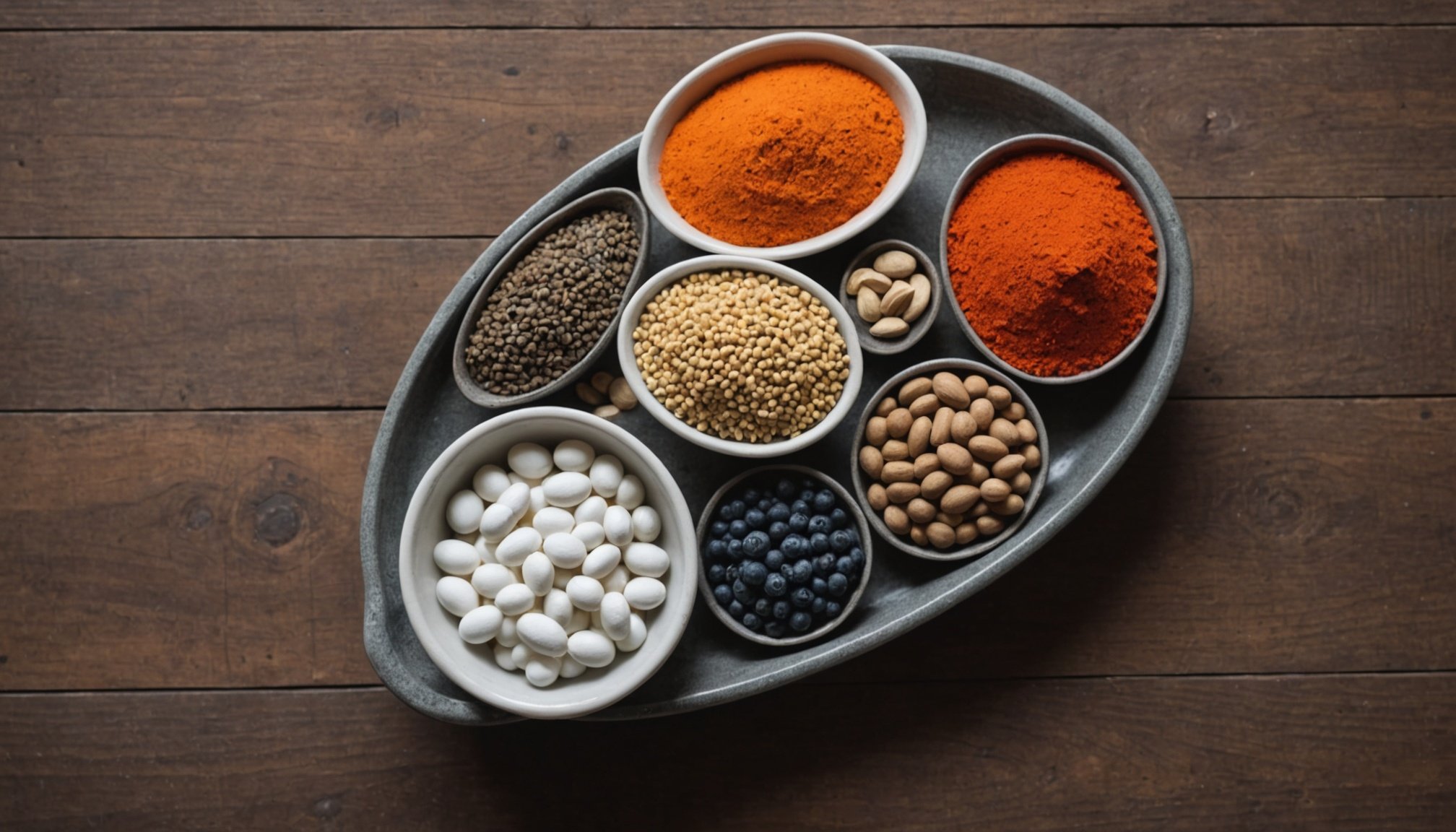Expecting a child brings joy but also increases nutritional needs, particularly for iron. This comprehensive guide outlines the UK guidelines for prenatal iron supplementation, ensuring both mother and baby remain healthy. Learn about recommended dosages, dietary sources, and the significance of maintaining optimal iron levels throughout pregnancy. Empower yourself with practical knowledge that supports your journey to motherhood while addressing common concerns and misconceptions surrounding prenatal iron intake.
Overview of Prenatal Iron Supplementation in the UK
Understanding the significance of prenatal iron supplementation is crucial for expectant mothers. Iron plays a vital role in supporting the increased blood volume and the development of the placenta and fetus. In the UK, health guidelines emphasize the need for adequate iron intake during pregnancy to prevent iron deficiency anemia, which can lead to complications such as preterm delivery and low birth weight.
Also read : Navigating UK Cosmetic Procedure Regulations: Ensuring Safety for Expecting Mothers
UK Guidelines for Prenatal Iron Supplementation are informed by historical practices and evolving research. Initially, universal supplementation was common, but current practices are more targeted. The National Institute for Health and Care Excellence (NICE) now recommends assessing iron levels through routine blood tests and advising supplementation only when necessary.
Historical Context
The evolution of supplementation practices reflects a shift from blanket recommendations to personalized care. In the past, all pregnant women were advised to take iron supplements. However, recent studies suggest that unnecessary supplementation can lead to side effects like constipation and nausea, prompting a more tailored approach.
Topic to read : Essential Guidelines for Safe Dental Care During Pregnancy in the UK: A Comprehensive Guide
Considerations for Expectant Mothers:
- Monitor iron levels regularly through blood tests.
- Discuss any concerns about iron intake with healthcare providers.
- Be aware of potential side effects and adjust dosage as needed.
By aligning with these guidelines, expectant mothers in the UK can ensure they receive the appropriate level of prenatal iron supplementation for a healthy pregnancy.
Types of Iron Supplements Available
Understanding the variety of iron supplements is essential for expectant mothers seeking the right fit for their needs.
Ferrous vs. Ferric Iron Supplements
The primary distinction between ferrous and ferric iron supplements lies in their chemical composition and absorption rates. Ferrous iron supplements, such as ferrous sulfate, are commonly preferred due to their higher bioavailability, meaning the body can absorb them more efficiently. In contrast, ferric iron supplements are less readily absorbed but may be gentler on the stomach, reducing side effects like constipation.
Forms of Iron Supplements
Iron supplements come in various forms, each with unique benefits:
- Tablets: Convenient and widely available, but may cause gastrointestinal discomfort.
- Liquids: Easier to ingest for those who struggle with pills, offering faster absorption.
- Gummies: A palatable option, particularly for those sensitive to taste, though they often contain lower iron concentrations.
Pros and Cons
Choosing the right type of iron supplement involves weighing the pros and cons:
- Ferrous supplements: High absorption but potential side effects.
- Ferric supplements: Milder on the stomach, lower absorption.
Each type of iron supplement offers distinct advantages and disadvantages, allowing for personalized choices based on individual needs and preferences.
Recommended Dosages for Pregnant Women
Understanding the appropriate iron intake during pregnancy is essential for maintaining maternal and fetal health.
UK Recommendations
In the UK, the recommended dosages for iron intake during pregnancy are not universally fixed. Instead, they are tailored based on individual needs. The National Health Service (NHS) suggests that pregnant women should aim for a daily iron intake of 14.8 mg, which can be adjusted depending on specific health conditions and dietary habits.
Factors Influencing Dosage
Several factors can influence the recommended dosages for pregnant women:
- Dietary Habits: Vegetarians or those with limited red meat intake may require higher supplementation.
- Health Conditions: Conditions like anemia or gastrointestinal disorders can necessitate adjustments in iron intake.
- Absorption Rates: Individual differences in iron absorption can also affect dosage needs.
Importance of Consultation
Consulting with healthcare providers is crucial for determining the appropriate iron intake. Personalized recommendations ensure that expectant mothers receive the right amount of iron, minimizing risks of deficiency or excess. Healthcare providers can offer tailored advice based on blood test results and overall health assessments.
By understanding these factors and consulting professionals, pregnant women can ensure they are meeting their recommended dosages efficiently, promoting a healthy pregnancy.
Potential Side Effects of Iron Supplementation
Understanding potential side effects is crucial for safe iron supplementation.
Common Side Effects
Iron supplements can lead to several side effects, impacting comfort and health. Common issues include constipation, nausea, and stomach cramps. These side effects often deter individuals from maintaining their recommended dosage. It's important to note that while these reactions are typical, they vary in intensity based on the type of supplement and individual tolerance.
Mitigating Side Effects
To mitigate these side effects, consider dietary adjustments. Consuming iron supplements with food can reduce stomach irritation. Incorporating fiber-rich foods can alleviate constipation. Additionally, staying hydrated and engaging in regular physical activity may further ease discomfort. Opting for ferric iron supplements, which are gentler on the stomach, can also help minimize adverse reactions.
When to Seek Medical Advice
If side effects persist or worsen, seeking medical advice is essential. Severe symptoms such as persistent vomiting or severe abdominal pain should not be ignored. Healthcare providers can recommend alternative supplements or adjust dosages to better suit individual needs.
Bulleted List:
- Common side effects: Constipation, nausea, stomach cramps
- Mitigation strategies: Dietary adjustments, staying hydrated, physical activity
- Seek medical advice: Persistent or severe symptoms
By understanding and addressing these side effects, individuals can safely incorporate iron supplements into their routine.
Dietary Sources of Iron
Exploring natural ways to boost iron intake during pregnancy.
Overview of Dietary Iron Sources
Dietary iron sources are vital for pregnant women to maintain adequate iron levels. Incorporating iron-rich foods into daily meals can complement supplementation effectively. Lean red meat, poultry, and fish are excellent sources of heme iron, which is easily absorbed by the body. For those preferring plant-based options, non-heme iron sources like lentils, beans, and spinach are valuable, though they require careful dietary planning to enhance absorption.
Comparison of Heme vs. Non-Heme Iron
The distinction between heme and non-heme iron lies in their absorption efficiency. Heme iron, found in animal products, is absorbed more readily. In contrast, non-heme iron, present in plant-based foods, is less efficiently absorbed. Consuming vitamin C-rich foods alongside non-heme iron sources can significantly boost absorption rates, making a balanced diet essential.
Importance of a Balanced Diet
A well-rounded diet rich in iron-rich foods ensures that expectant mothers receive necessary nutrients. While supplements provide a concentrated iron source, they should not replace a varied diet. Combining dietary iron sources with supplements offers a comprehensive approach to managing iron intake.
Bulleted List:
- Heme iron sources: Red meat, poultry, fish
- Non-heme iron sources: Lentils, beans, spinach
- Enhancers: Vitamin C-rich foods like citrus fruits
By understanding these dietary iron sources, pregnant women can make informed decisions about their nutrition.
Expert Opinions on Iron Supplementation
Insights from healthcare providers and researchers on prenatal iron supplementation.
Insights from Obstetricians and Nutritionists
Expert opinions from obstetricians and nutritionists emphasize the importance of personalized iron supplementation. Dr. Sarah Johnson, a leading obstetrician, notes, "Assessing individual needs through blood tests is crucial for optimizing iron intake during pregnancy." Nutritionists also highlight the role of diet in conjunction with supplements, suggesting tailored plans for expectant mothers.
Research Studies Supporting Supplementation Guidelines
Recent research studies bolster the supplementation guidelines recommended by healthcare providers. A study published in the Journal of Maternal-Fetal & Neonatal Medicine found that targeted iron supplementation reduces the risk of iron deficiency anemia without causing unnecessary side effects. These findings underscore the need for expert opinions in crafting effective supplementation strategies.
Considerations for Iron Testing During Pregnancy
Regular iron testing is vital to ensure adequate levels throughout pregnancy. Healthcare providers recommend routine blood tests to monitor iron status, allowing for timely adjustments in supplementation. This approach aligns with expert opinions advocating for a balance between dietary intake and supplements.
Bulleted List:
- Obstetrician insights: Importance of personalized plans
- Research findings: Targeted supplementation reduces risks
- Testing considerations: Routine blood tests for monitoring
By integrating these expert opinions and research insights, expectant mothers can make informed decisions about their iron supplementation needs.
Practical Tips for Safe Iron Supplementation
Implementing best practices for effective and safe iron intake.
Best Practices for Taking Iron Supplements
Safe iron supplementation requires attention to timing and dietary habits. It is often recommended to take iron supplements on an empty stomach for optimal absorption. However, if gastrointestinal discomfort occurs, taking them with a small amount of food can help. Avoid consuming dairy products or caffeine close to supplement intake, as these can hinder absorption.
Importance of Adhering to Recommended Guidelines
Adhering to recommended guidelines is crucial for safe iron supplementation. Over-supplementation can lead to adverse effects, while under-supplementation may not address iron deficiency adequately. Following healthcare provider advice and adjusting dosage based on blood test results ensures balanced iron levels.
Resources for Tracking Supplementation and Dietary Intake
Utilizing resources to track supplementation and dietary intake can enhance the safety and effectiveness of iron consumption. Consider using mobile apps or journals to monitor daily iron intake from both supplements and food. These tools can help identify patterns and ensure adherence to recommended guidelines.
Bulleted List:
- Take on an empty stomach: Enhances absorption
- Avoid dairy and caffeine: Prevents absorption interference
- Use tracking tools: Ensures adherence to guidelines
By following these practical tips, expectant mothers can achieve safe iron supplementation, optimizing their health and well-being during pregnancy.
Resources and Support for Expecting Mothers
Exploring valuable resources for pregnant women to ensure a healthy pregnancy journey.
Reputable Organizations
Expecting mothers can rely on reputable organizations like the National Health Service (NHS) for comprehensive guidelines and support. These organizations provide essential information on prenatal care, including iron supplementation recommendations, ensuring that expectant mothers are well-informed about their health needs.
Online Resources
Numerous online resources are available to help track iron intake and overall health during pregnancy. Mobile apps and websites offer tools for monitoring dietary habits and supplement usage, making it easier for pregnant women to adhere to health guidelines. Such resources empower women to take control of their nutrition and well-being.
Community Support
Joining community support groups and forums can be invaluable for expectant mothers seeking shared experiences and advice. These platforms offer a space for women to connect, share tips, and discuss challenges related to pregnancy, including managing iron intake. Engaging with a supportive community can provide emotional and practical support throughout the pregnancy journey.
Bulleted List:
- NHS: Offers prenatal care information and support
- Online tools: Track iron intake and health
- Support groups: Connect with other expectant mothers
By utilizing these resources and support systems, pregnant women can navigate their pregnancy with confidence and assurance.











